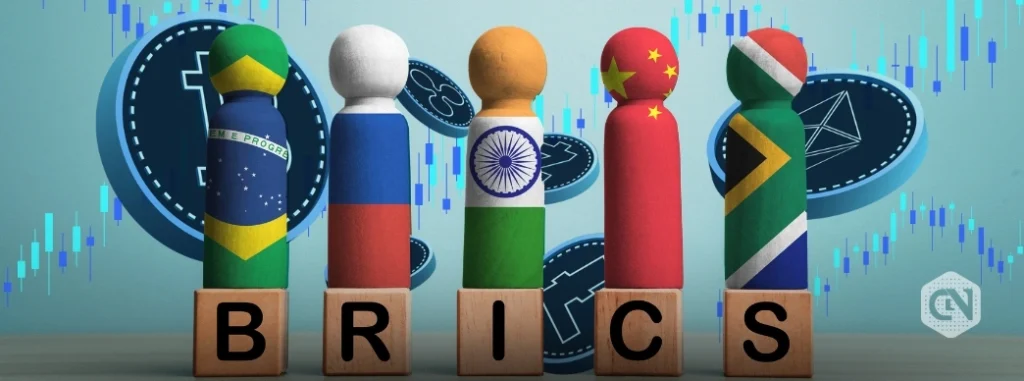Russian lawmakers are advancing proposals for cryptocurrency utilization in worldwide commerce because the BRICS summit commences in Kazan.
The initiative focuses on enabling Russian Bitcoin miners to promote on to worldwide patrons. This could possibly be a possible shift in how crypto may be used to facilitate cross-border transactions.
BRICS nations search alternate options to greenback
In keeping with Bloomberg’s reporting, the proposal emerges as BRICS nations search alternate options to conventional dollar-based monetary methods.
Richard Wolff, economist and professor emeritus on the College of Massachusetts Amherst, notes that the BRICS coalition is gaining momentum as U.S. international affect faces challenges.
The financial significance of this growth is underscored by BRICS’ increasing affect.
In keeping with Matthew Sigel, head of crypto analysis at VanEck, the nine-member bloc now represents 26% of the world’s inhabitants and 45% of world GDP, matching the G7’s financial footprint whereas representing a considerably bigger inhabitants share.
Because the BRICS Summit Kicks Off, Prime Lawmakes Are Pushing the Concept that Russian Miners Might Promote Their #Bitcoin to Worldwide Consumers, Who Would Use BTC and Different Crypto to Pay for Imports, Successfully Bypassing Western Sanctions.
— matthew sigel, recovering CFA (@matthew_sigel) October 23, 2024
A key growth on this path is the partnership announcement between Russia’s BitRiver and the Russian Direct Funding Fund (RDIF) for a BRICS-wide Bitcoin mining initiative.
This collaboration suggests a coordinated strategy to cryptocurrency infrastructure growth throughout BRICS nations.
The summit, which Brazil’s President Lula da Silva will be part of nearly as a result of well being considerations, comes at a time when BRICS nations are actively exploring alternate options to conventional monetary methods.
Wolff factors to broader geopolitical shifts, together with U.S. challenges in numerous areas, as context for these developments.
This initiative represents a possible shift in worldwide commerce dynamics, significantly for nations going through Western sanctions. The proposal means that cryptocurrencies might present another cost mechanism for import transactions.

